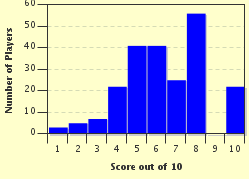
Hello Blossom! Trivia Quiz
What a beautiful garden! Hopefully you have planned it out to take into account which ones are (most commonly) annuals, biennials, and perennials. See if you can match them together.
A matching quiz
by reedy.
Estimated time: 4 mins.
